Chair
Stephen Wyatt, DO, FAOAAM:
Stephen Wyatt is the Director of the MAHEC Addiction Psychiatry Fellowship, a CoPI/Clinical Expert for the SAMHSA Provider Clinical Support System (PCSS), Co-Chair for development of the ASAM Guidelines for Office-Based Opioid Treatment, and an adjunct clinical faculty member of the University of North Carolina. He is a former Chairman of the North Carolina Psychiatric Association Addiction Psychiatry Committee, Past President of the American Osteopathic Academy of Addiction Medicine, and recent recipient of the North Carolina Governors Institute’s, Dr. Frederick B. Glaser Award.
About COPE
The Coalition on Physician Education in Substance Use Disorders (COPE) is a voluntary organization devoted to improving patient care and the public health by assuring that all physicians are trained to prevent, identify, and provide specialty-appropriate interventions for patients with substance use problems.
BOARD MEMBERS
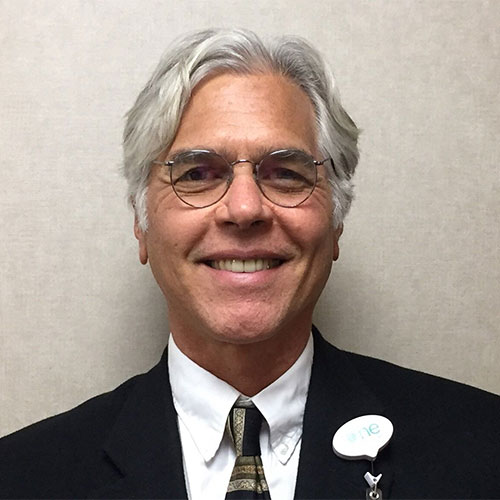
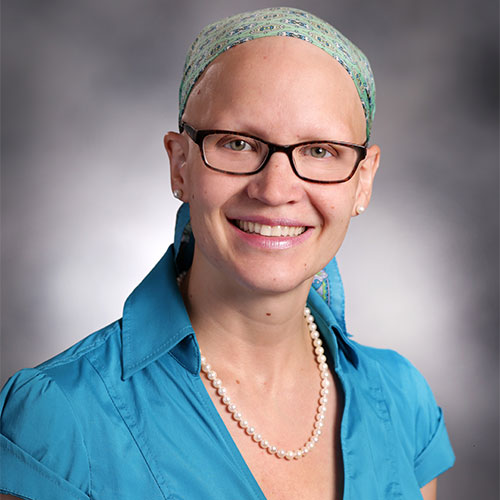
Vice Chair
Cara Poland, MD, MEd, FACP, DFASAM:
Cara Poland was trained in internal medicine at St. Joseph Mercy Hospital in Ann Arbor, Michigan and in addiction medicine at Boston Medical Center in Boston, Massachusetts. She has an interest in educating healthcare providers and providers-in-training to improve care for patients with substance use disorders and alcohol use disorders through her work on MI CARES and with various professional organizations. She is the Past President of the Michigan Society of Addiction Medicine. She is the medical director of addiction medicine at Spectrum Health and collaborates with other providers in Spectrum Health’s GREAT MOMs program to treat pregnant women with substance use disorders.
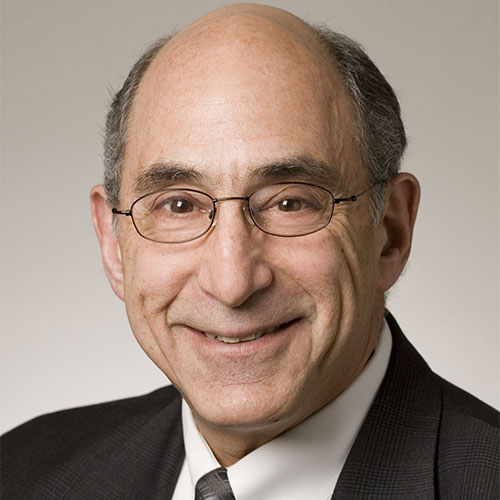
Treasurer
Mark L. Kraus, MD, FASAM, DABAM:
Mark Kraus is a General Internist at Franklin Medical Group/Trinity Healthcare of New England in Waterbury, Connecticut, Past Vice President and a Board Member of the American Society of Addiction Medicine (ASAM), a Distinguished Fellow of ASAM and a Diplomate of the American Board of Addiction Medicine. Dr. Kraus is an Assistant Clinical Professor of Medicine at Yale University School of Medicine, does clinical research in and teaches Addiction Medicine and General Internal Medicine to Yale and St. Mary’s Hospital Primary Care General Internal Medicine Residents. Dr. Kraus has written numerous articles and chapters about Addiction and has lectured nationally and internationally on the subject.
In addition to being a former Vice-President of ASAM, Dr. Kraus was a member of ASAM’s Legislative and Finance Committee, Co-Chair of the Patient Advocacy Task Force and Chairman of ASAM’s Consensus 42-CFR Action group (AAAP, AOA-AM, AMERSA), Chairman of ASAM’s Development Committee for Strategic Planning and former Co-Chair of and current member of ASAM’s Public Policy Committee. Dr. Kraus is a member of the steering committee of the Coalition of Physician Education in Substance Use Disorders (COPE) and current Treasurer and Board Member of COPE. Dr. Kraus was Co-Chair of the Physician’s Task Force on Education for AMERSA.
Dr. Kraus has been a member of the Primary Care Physician’s Work Group for NIDA, the Expert Panel of the White House Office of National Drug Control Policy for the Addiction Medicine Education Summit meetings, the Connecticut Alcohol and Drug Policy Council and the Connecticut Mental Health Policy Council. He serves as a Mentor in the Physician Clinical Support System for Buprenorphine, Methadone and Medical Assisted Treatment for Opiate Dependence.
Dr. Kraus is a founder and past President of ASAM’s Connecticut Chapter, the former Director of Addiction Medicine at two Hospitals in Waterbury, Connecticut. He is currently Chairman of the Connecticut State Medical Society’s Addiction Medicine Committee and Chief Medical Officer of Connecticut Counseling Centers, Inc.
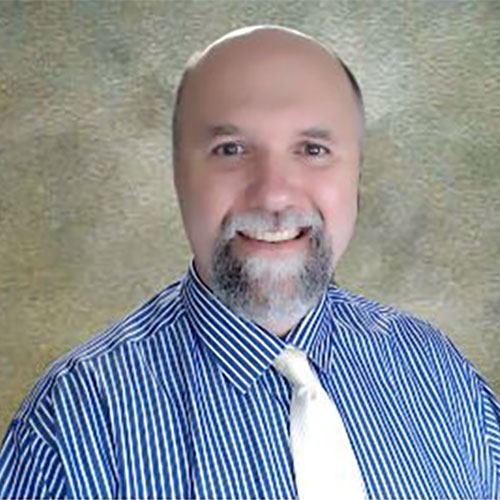
Frank Bailey, Ed.D.:
Frank Bailey, EdD, is the Medical Educator at Northern Light Health Eastern Maine Medical Center in Bangor, Maine. He received a B.S. degree in Kinesiology, Physiology, and Education with a concentration in Developmental Disabilities, a M.Ed. degree in Kinesiology, Physiology, and Education with a concentration in Curriculum Design from the University of Maine at Orono, and a EdD degree in Transformative Leadership from The University of New England. He is a certified EQ coach through the Lynn Leadership Group. He deploys tailored EQ curricula to all learner levels throughout the healthcare organization, with the goal of increasing team function to provide phenomenal patient care. He also oversees faculty development of many types of clinical preceptors. He has assisted in designing and implementing the University of New England’s College of Osteopathic Medicine Longitudinal Integrated Curriculum (LIC). He currently holds the position of Program Director of the LIC as a UNECOM Clinical Instructor.
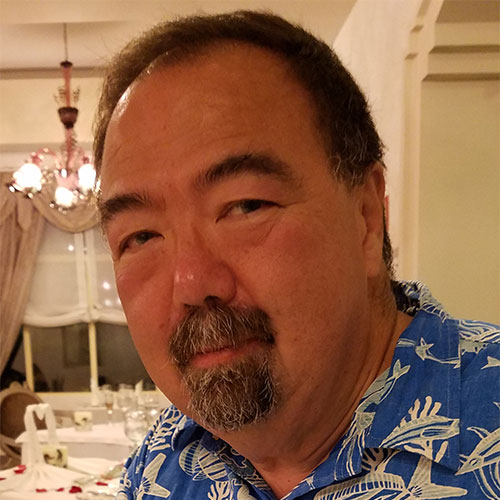
Anthony Dekker, DO, FAOAAM, FASAM:
Tony is currently the Chief Medical Officer of the Division of Developmental Disabilities for the State of Arizona. Previously he was a member of the Primary Care Service Line at the Gallup Indian Medical Center in the Indian Health Service. He provided services in addiction and pain medicine, and primary care and is part of the team working on the COVID epidemic. He now directs a team of professionals caring for developmentally disabled children and adults in Arizona.
After serving the Indian Health Service from 1998 to 2010 in Arizona he was honored to be a member of the Joint Task Force Medical Team that specialized in the care of Wounded Warriors. He was also the Acting Director of the Office of Health Programs at the Phoenix Area Office supervising 15 health departments in Nevada, Utah and Arizona. He was also the Associate Director of the Phoenix Indian Medical Center and the Director, Ambulatory Care and Community Health. He served as the Director of Medical Education for the Phoenix Indian Medical Center.
Born and raised in Western Michigan he graduated from Hope College in Holland Michigan. He completed his Osteopathic education at Michigan State University in 1978. He completed his internship and family medicine residency at the Chicago College of Osteopathic Medicine and an Adolescent and Young Adult Medicine fellowship at Rush-Presbyterian-St Luke’s Medical Center in Chicago. As a Public Health Service Scholar he served Chicago’s South Side for fourteen years. He was Professor and Chair of Family Medicine at the Kansas City University of Medicine and Biosciences and Clinical Associate Professor at the University of Kansas Medical Center and the University of Missouri-Kansas City (Children’s Mercy Hospital) during his four years in Kansas City.
Dr. Dekker is board certified in Family Practice and Osteopathic Manipulative Treatment, Adolescent and Young Adult Medicine, Addiction Medicine and Pain Medicine. He is a Fellow in numerous professional societies. As a member of the healthcare team at the Gallup Indian Medical Center, he is dedicated to the Mission of providing the highest quality care to American Indians and Alaska Natives. His areas of expertise include addiction medicine, chronic pain syndromes, infomatics, high risk youth, domestic violence and behavioral health. He has been the Chief Clinical Consultant in Addiction Medicine and Chronic Pain for the Indian Health Service, US Public Health Service and has served on several national panels addressing substance abuse in America. Past faculty appointments include clinical professorships at George Washington University (Washington DC), Kansas City University (KCUMB), Andrew Taylor Still University (Mesa, AZ) and the Burrell College of Osteopathic Medicine, New Mexico.
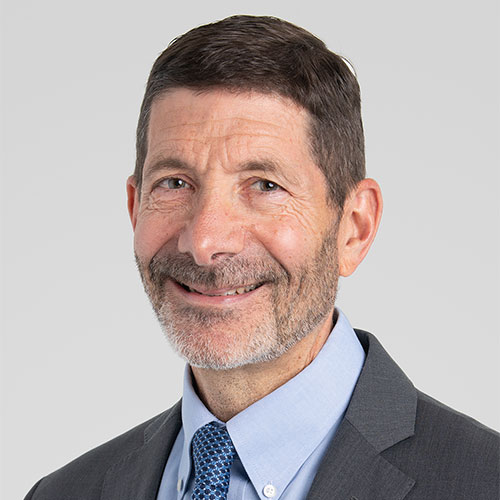
J. Harry (Bud) Isaacson, MD, FACP:
Bud Isaacson is the Executive Dean of the Cleveland Clinic Lerner College of Medicine of Case Western Reserve University. He received his medical degree from the University of Michigan in 1984 and completed his Internal Medicine Residency and Chief Residency at the University of Vermont in 1988. Dr. Isaacson joined the Department of General Internal Medicine at the Cleveland Clinic in 1993 where he practices and teaches. He served as the Assistant Dean for Clinical Education at CCLCM prior to being selected as Executive Dean. He has served as Chair of the Professionalism Council and has served as a member of the Board of Governors at Cleveland Clinic. Professionalism Council initiatives have included development of a 6 session on-boarding program focusing on professionalism, revision of the annual professionalism review process and creation of an interactive course – Civility, Professionalism and Resilience (CPR) for leaders and staff at the Cleveland Clinic. Dr. Isaacson’s interests beyond clinical medicine include medical education, professionalism, doctor/patient communication skills, substance use disorders and the use of appreciative inquiry in medicine. He is a Fellow of the American College of Physicians and a member of the Society of General Internal Medicine.

Michael M Miller, MD, DLFAPA, DFASAM:
Michael M Miller, MD, DLFAPA, DFASAM, is a board-certified general and addiction psychiatrist and is board-certified in Addiction Medicine by the American Board of Preventive Medicine. A Distinguished Life Fellow of the American Psychiatric Association and a Distinguished Fellow of the American Society of Addiction Medicine (ASAM), Dr. Miller serves full-time as an addiction psychiatrist in the STAR outpatient addiction clinic of the Jerry L Pettis VA Medical Center in Loma Linda, California. He is active in clinical teaching in the addiction medicine fellowship program of Loma Linda University and teaches residents from LLU and from UC-Riverside as well as medical students. He is Professor in Preventive Medicine at Loma Linda University and Clinical Associate Professor was on the clinical faculty at the Medical College of Wisconsin. He has been a medical educator since 1985 when he joined the clinical faculty of the University of Wisconsin, eventually serving as Clinical Adjunct professor through 2021.
Dr. Miller is a past president and board chair of ASAM and was a founding member and the first president of the Wisconsin Society of Addiction Medicine. As chair of the ASAM Nomenclature Committee, he led the development of the 2013 AASAM Definition of Addiction. He has served on the board of directors of the American Board of Addiction Medicine (ABAM) and the American College of Academic Addiction Medicine (ACAAM), where he was central to facilitating the creation of the subspecialty certification process in addiction medicine within the American Board of Medical Specialties (ABMS) and the accreditation of fellowship programs by the Accreditation Council on Graduate Medical Education (ACGME). Additionally, he served as Speaker of the House of Delegates and as a member of the board of directors of the Wisconsin Medical Society (WMS). He remains an independent consultant to a wide range of non-profit, governmental, and health care clients, as well as in expert witness cases.
Dr. Miller was an active member of the AMA House of Delegates from 1996 through 2021, representing ASAM and the WMS there. He was elected by the AMA House of Delegates to two terms on the AMA Council on Science and Public Health (CSAPH) and served as the Council’s Chair for the year 2019-20. He is recipient of the highest award bestowed by ASAM (The John P. McGovern Award, 2019) and the highest award bestowed by the WMS (The Directors’ Award, 2021).

John A. Renner, Jr., MD:
Dr. Renner is Professor of Psychiatry, Boston University School of Medicine and Associate Chief of Psychiatry, VA Boston Healthcare System. He is past President of the American Academy of Addiction Psychiatry, former Chair of the American Psychiatric Association Council on Addiction Psychiatry, and Director of the Boston University/VA Addiction Psychiatry Residency. Dr. Renner has developed nationally recognized models for training physicians in addiction treatment, has written extensively on the treatment of alcoholism and drug addiction and has played a major role nationally training physicians in the use of buprenorphine. He is senior editor of the American Psychiatric Association Publishing’s Handbook on Office-Based Buprenorphine Treatment of Opioid Use Disorder.

Norman W. Wetterau, MD, FAAFP, FASAM:
Norman W. Wetterau, MD, FAAFP, FASAM, served as a specialist in addiction medicine, in a wide variety of settings, most recently in Tricounty Family Medicine, Dansville, N.Y., and as Clinical Assistant Professor of Family Medicine, the University of Rochester School of Medicine, Rochester, N.Y. A member of the American Society of Addiction Medicine (ASAM) since 1985, Dr. Wetterau is President of the New York Society of Addiction Medicine. He currently serves as ASAM’s Chairman of the Family Practice Workgroup, ASAM Liaison to the American Academy of Family Physicians, ASAM Representative to the Patient-Centered Primary Care Collaborative, Program Committee Member for the Annual Medical-Scientific Conference, and a past member of ASAM’s Strategic Planning Task Force.

Executive Director
Jenifer Van Deusen:
COPE Executive Director Jenifer Van Deusen holds a B.S. in Education from Lesley University and an M.Ed. in Educational Administration from the University of Southern Maine, with extensive additional academic work in medical education, educational leadership, organizational development and systems thinking. Jen currently serves as University of New England College of Osteopathic Medicine’s (UNE COM) Interprofessional Education and Practice Faculty and as a member of UNE COM’s substance use curriculum team. Her long career includes service as a public school teacher, a consultant with Maine’s Department of Education, the leader of a statewide network of teachers teaching teachers, curriculum director in a school district, the education specialist in a family medicine residency, and as UNE COM’s Director of Curriculum. Jen’s interests include successful curriculum transformation, technological solutions that support high-quality learning, teaching and assessment, faculty development, and grant writing. Outside of work, you can find Jen out in nature, learning to play the dulcimer and exploring inner and outer frontiers.

